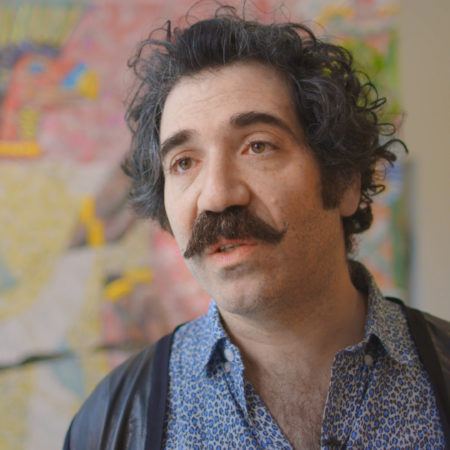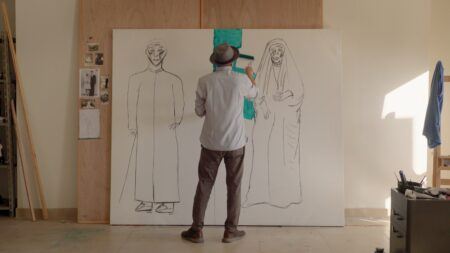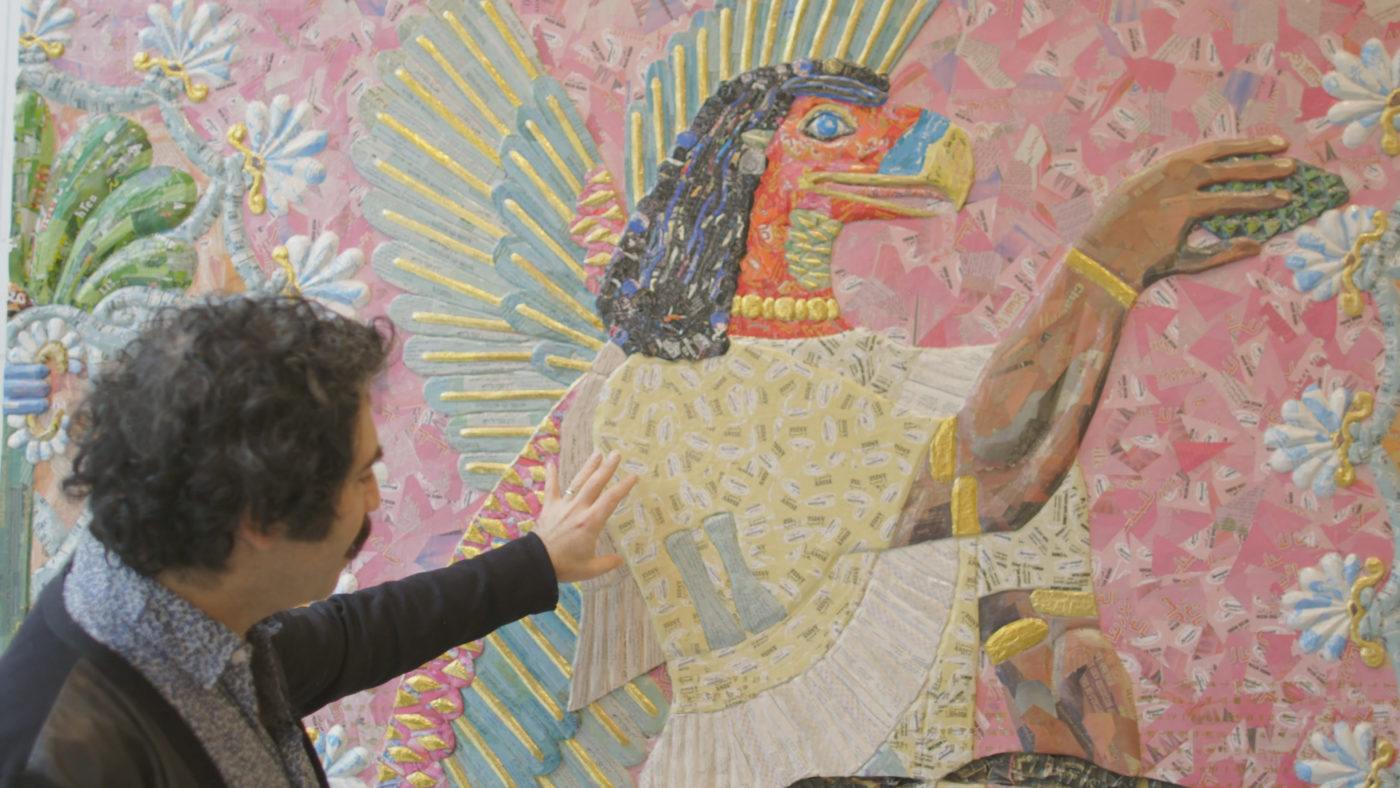Michael Rakowitz

Michael Rakowitz was born in 1973 in Great Neck, NY. The artist draws upon extensive research on cultural objects and events, in order to weave together complex histories and unlikely symbols in his sculptures, installations, participatory workshops, films, and architectural interventions. His Iraqi-Jewish heritage and the damage caused by long conflicts between the West and the Middle East also serve as important influences for his work. Rakowitz critiques the ongoing forces of colonization, bringing attention not only to the value of cultural artifacts that have been lost, looted, or destroyed but also to the people who have suffered from continuing violence. His work asks viewers to reconsider the relationships between hospitality and hostility, and provenance and expropriation, and to confront the complicity of cultural institutions and audiences in geopolitical matters.
Rakowitz’s early works focused on architecture and the ways that buildings could shape human interactions and reflect human values. From these concerns emerged the paraSITE series (ongoing from 1998): inflatable shelters designed for people experiencing homelessness to attach to the exterior outtake vents of buildings’ HVAC systems and explore the relationship between the unwitting host building and those people who are provided or excluded from shelter. Rakowitz’s work also regularly draws upon his family history; for example, in RETURN (ongoing from 2004), the artist revives his grandfather’s 1940s import-export business. Initially created as a place for the public to ship goods to and from Iraq when the logistical and financial challenges caused by the Iraq War made such exchanges impossible, RETURN also became a way for Rakowitz to import Iraqi date syrup, a staple ingredient of Iraqi kitchens that faced similar import challenges due to US Customs, Border Patrol, and Homeland Security restrictions. Often driven to Syria for packaging and then to Lebanon for labeling so that it could be exported as a “product of Lebanon,” Iraqi date syrup became a symbolic material for Rakowitz, as it was unable to reveal its true origin, unlike the expropriated objects in museums that are valued precisely because of their origin. Rakowitz’s most prominent work, The invisible enemy should not exist (ongoing from 2007), utilizes papier-mâché made from the brightly colored packaging of Iraqi food products, like date syrup and dates, along with fragments of Arabic-language newspapers. With this material, Rakowitz creates sculptures—what the artist calls “ghosts”—that serve as placeholders for the cultural artifacts that were looted from the Iraq Museum in Baghdad following the 2003 U.S. invasion and from historical sites that were later destroyed by groups like ISIS. Replicating the size and appearance of the originals, the works in this series range from small figures to reliefs of walls from the ancient Assyrian palace of Nimrud to the monumental Assyrian deity called a lamassu that the artist created for the Fourth Plinth, a public-art project in Trafalgar Square, London. Embodying an ongoing commitment to creating the more than 8,000 museum objects that are missing or destroyed, Rakowitz’s work resists the forces of cultural erasure and continually iterates possible solutions in the face of today’s political and humanitarian crises.
Rakowitz received a BFA from Purchase College, State University of New York, and an MS in visual studies from Massachusetts Institute of Technology. He lives and works in Chicago.
Links:
Artist’s website
Videos 1
-
Michael Rakowitz
Read
“If we’re to have conversations about what decolonization truly looks like, it’s accompanied by repair and it’s accompanied by accountability. That work is actually something that’s never done.”
Michael Rakowitz

